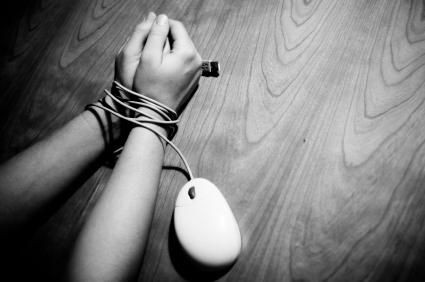Pennsylvania Hospital Opens First Inpatient Internet Addiction Program [Video]

A psychiatric hospital in Pennsylvania is the first in the nation to open an inpatient treatment program for Internet addiction.
The voluntary 10-day program will open Sept. 9 at the Behavioral Health Services at Bradford Regional Medical Center in central Pennsylvania, administered by psychiatrists and cognitive specialists in addiction.
Internet addiction “is a problem in this country that can be more pervasive than alcoholism,” Kimberly Young, a doctor with the program, told Fox News. Although normally involved with treatment of drug and alcohol addictions, the specialists emphasize the growing medical relevance of Internet addiction, particularly as the web technologies continues to evolve. Unlike other addictions, however, “the Internet is free, legal, and fat-free.”
Clinicians will treat several adult inpatients at a time, with patient cohorts beginning treatment the same day. The program involves group therapy and will be housed in a wing of the hospital dedicated to addiction treatment. Patients checking in for the 10-day respite from the outside world will complete a psychological evaluation before learning ways to cope with the modern world, such as making minimal use of the Internet. Unlike drinking alcohol, Internet use is sometimes unavoidable for many tasks — such as paying medical bills for the treatment.
However, Young and her colleagues emphasize that technology itself does not constitute the pathology of Internet addiction. As non-addicts handle their booze with a couple of glasses of wine now and then, most Internet users use the technology in a healthy way, conducting social and business matters in a non-consuming manner. Rather, the program is intended for Internet junkies whose lives become dominated by obsessive Internet use. Such people lose the ability to function well in normal life, conflating the online world into the primary realm of their existence.
Young and other specialists first proposed Internet addiction as a medical condition in the mid-1990s, when most Americans had yet to become dependent on the technology for daily life. As the Internet continues to develop, so too does recognition of the potential for addiction.
However, most people suffering from addiction to the Internet also experience an underlying psychiatric disorder or personality problem, possibly undiagnosed, according to Roger Laroche, the medical director of the psychiatry department at the hospital. Thus, patients entering the program would be evaluated after a “digital detox” involving 72 hours without connectivity.
The thought alone is enough to frighten many Internet addicts, who may experience withdrawal similar to people detoxing from long-term marijuana use or other drugs. In such cases, people may become depressed, grouchy, or even violent, Laroche said. A 2010 study on Internet addiction at the University of Maryland found that 200 students “detoxing” for just 24 hours reported feelings of social withdrawal as well as anxiety. In May, the American Psychiatric Association officially recognized Internet addiction in its Diagnostic and Statistical Manual of Mental Disorders 5, known as the DSM-5, listing gaming disorder for the first time.
Below is a poignantly produced video on the overuse of mobile Internet technology:



























